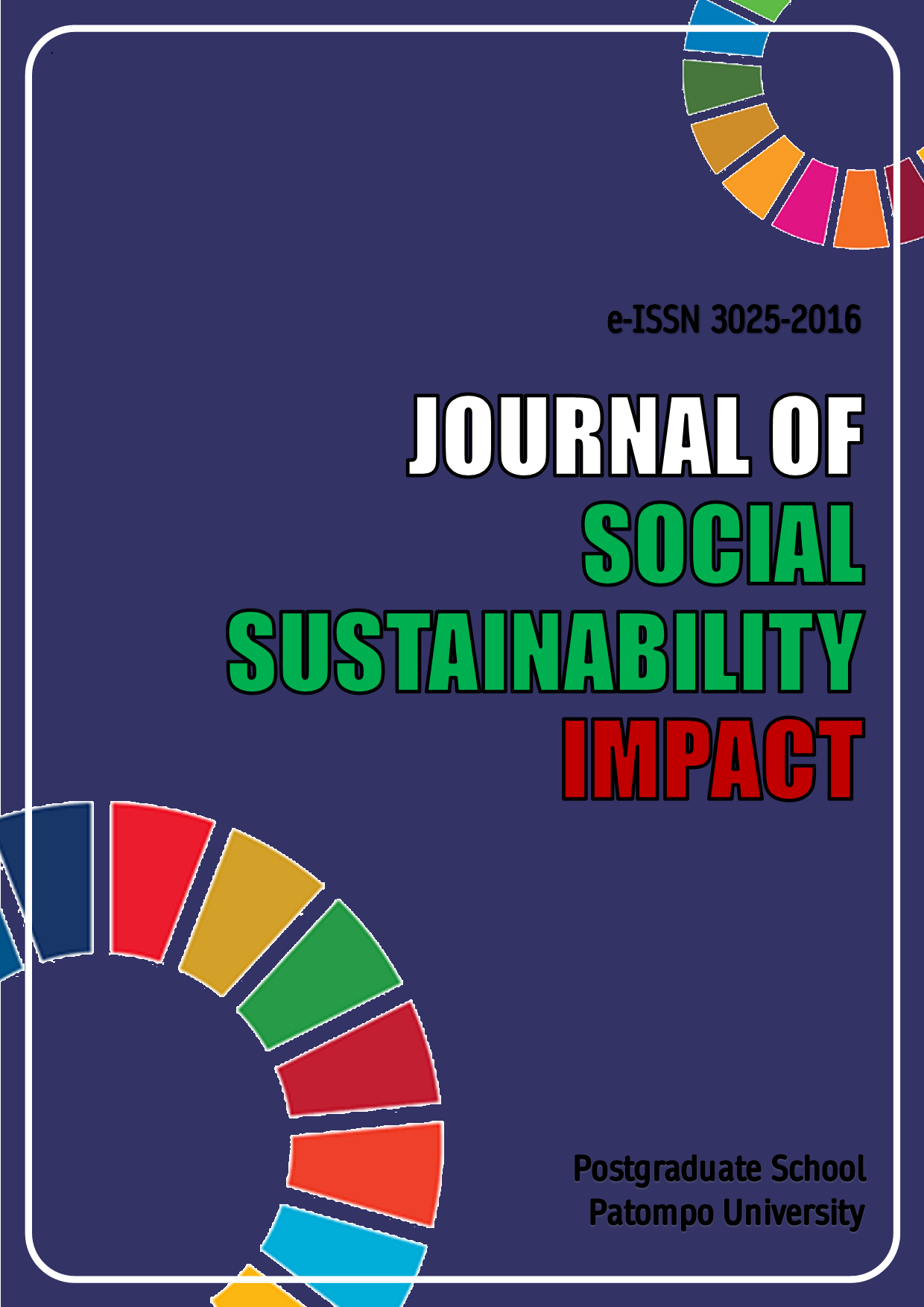Assessment of the Regional Government's Effectiveness in Raising Regional Taxes in The Mamasa Regency
Keywords:
fiscal policies, economic resilience, policymakers, tax compliance, taxpayer behaviorAbstract
This detailed study investigates the efficiency of the local tax collection system in Mamasa Regency, emphasizing its vital role in underpinning the local economy. Acknowledging the critical importance of local tax revenues, this research enhances government fiscal policies. Utilizing a qualitative approach involves in-depth interviews with key stakeholders, participant observation, and thorough documentation analysis, allowing for a comprehensive understanding of the tax system. The findings indicate that while Mamasa Regency's tax collection system is effectively functioning, there are considerable areas for improvement. Key development areas include reinforcing the tax administration system through process streamlining and regulatory framework enhancement, increasing transparency in tax operations to boost taxpayer trust and compliance, and integrating advanced information technology to improve data management and accuracy. These enhancements are pivotal in making tax compliance more accessible for taxpayers. The study also sheds light on the intricate dynamics of local tax collection, revealing insights into operational challenges and taxpayer behavior. It offers strategic recommendations to augment the efficiency of Mamasa Regency's tax system and provide actionable guidance for similar regions. These suggestions serve as a blueprint for jurisdictions seeking to improve their tax collection methods, ultimately leading to greater economic resilience through enhanced fiscal management. This research is valuable for policymakers and governmental bodies aiming to refine tax collection practices and boost economic stability.
References
Ahmad, E., Ahmad, E., & Stern, N. (1991). The theory and practice of tax reform in developing countries. Cambridge University Press.
Auty, R. M. (2001). The political economy of resource-driven growth. European Economic Review, 45(4–6), 839–846.
Bahl, R. W., & Linn, J. F. (1984). Urban finances in developing countries: research and findings.
Bahl, R. W., & Smoke, P. J. (2003). Restructuring local government finance in developing countries: Lessons from South Africa. Edward Elgar Publishing.
Bahl, R., & Wallace, S. (2005). Public financing in developing and transition countries. Public Budgeting & Finance, 25(4s), 83–98.
Besley, T., & Persson, T. (2013). Taxation and development. In Handbook of public economics (Vol. 5, pp. 51–110). Elsevier.
Bird, R. M., & Vaillancourt, F. (1998). Fiscal decentralization in developing countries: an overview. Fiscal Decentralization in Developing Countries, 1–48.
Bird, R. M., & Zolt, E. M. (2005). The limited role of the personal income tax in developing countries. Journal of Asian Economics, 16(6), 928–946.
Bird, R. M., & Zolt, E. M. (2008). Tax policy in emerging countries. Environment and Planning C: Government and Policy, 26(1), 73–86.
Braun, V., & Clarke, V. (2006). Using thematic analysis in psychology. Qualitative Research in Psychology, 3(2), 77.
Creswell, J. W. (2014). Research Design : Qualitative, Quantitative, and Mixed Method Approaches (4th ed.). SAGE Publications, Inc.
Creswell, J. W. (2021). A concise introduction to mixed methods research. SAGE publications.
Denzin, N. K., & Lincoln, Y. S. (2011). The Sage handbook of qualitative research. Sage.
Erlandson, D. A. (1993). Doing naturalistic inquiry: A guide to methods. Sage.
Graziano, A. M., & Raulin, M. L. (1993). Research methods: A process of inquiry. HarperCollins College Publishers.
Guba, E. G., & Lincoln, Y. S. (1989). Fourth generation evaluation. Sage.
Hair, J. F., Wolfinbarger, M., Money, A. H., Samouel, P., & Page, M. J. (2015). Essentials of Business Research Methods (2nd ed.). Routledge, Taylor & Francis Group.
Inman, R. P., McGuire, M., Oates, W. E., Pressman, J. L., & Reischauer, R. D. (2015). Financing the New Federalism: Revenue Sharing, Conditional Grants and Taxation. Routledge.
International Monetary Fund. (2019). Revenue Mobilization in Developing Countries. In International Monetary Fund: Washington DC, USA.
Karl, T. L. (1997). The paradox of plenty: Oil booms and petro-states (Vol. 26). Univ of California Press.
Lincoln, Y. S., & Guba, E. G. (1985). Naturalistic inquiry. sage.
Miles, M. B., Huberman, A. M., & Saldana, J. (2013). Qualitative data analysis. SAGE Publications Sage CA: Los Angeles, CA.
Moleong, L. J. (2007). Qualitative Research Methodology. PT Remaja Rosdakarya.
Musgrave, R. A. (1973). Public finance in theory and practice. McGraw-Hill Kogakusa.
Nowell, L. S., Norris, J. M., White, D. E., & Moules, N. J. (2017). Thematic analysis: Striving to meet the trustworthiness criteria. International Journal of Qualitative Methods, 16(1), 1609406917733847.
Oates, W. E. (1972). Fiscal Federalism, Harcourt Brace Jovanovich. New York, 35.
Oates, W. E. (2008). On the evolution of fiscal federalism: Theory and institutions. National Tax Journal, 61(2), 313–334.
Rodríguez-Pose, A., & Tijmstra, S. A. R. (2007). Local economic development in sub-Saharan Africa. Environment and Planning C: Government and Policy, 25(4), 516–536.
Schreiber, J. B., Nora, A., Stage, F. K., Barlow, E. A., & King, J. (2006). Reporting structural equation modeling and confirmatory factor analysis results: A review. The Journal of Educational Research, 99(6), 323–338.
Smoke, P. (1994). Local government finance in developing countries: the case of Kenya.
Stenberg, C. W., & Austin, S. L. (2007). Managing local government services: a practical guide. ICMA Press.
Syafri Harahap, S. (2003). The disclosure of Islamic values–annual report. The analysis of Bank Muamalat Indonesia’s annual report. Managerial Finance, 29(7), 70–89.
Tanzi, V., & Zee, H. H. (2000). Tax policy for emerging markets: developing countries. National Tax Journal, 53(2), 299–322.
World Bank. (2018). World development report 2019: The changing nature of work. The World Bank.
Zagler, M., & Dürnecker, G. (2003). Fiscal policy and economic growth. Journal of Economic Surveys, 17(3), 397–418.
Downloads
Published
How to Cite
Issue
Section
License
Copyright (c) 2023 Luther Ledang, Nawir Rahman, Nurdin Nurdin, Nurfitraeny Nasruddin

This work is licensed under a Creative Commons Attribution-ShareAlike 4.0 International License.




